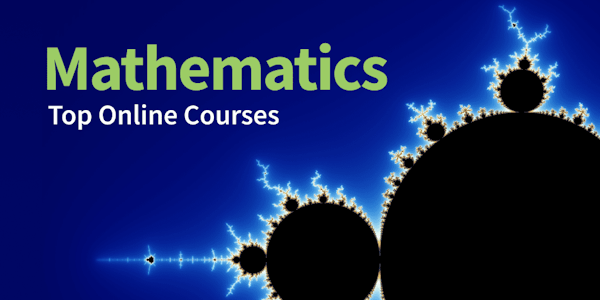Mathematics for Computer Science
Massachusetts Institute of Technology via MIT OpenCourseWare
-
115
-
- Write review
Overview
Syllabus
Lec 1 | MIT 6.042J Mathematics for Computer Science, Fall 2010.
Lec 2 | MIT 6.042J Mathematics for Computer Science, Fall 2010.
Lec 3 | MIT 6.042J Mathematics for Computer Science, Fall 2010.
Lec 4 | MIT 6.042J Mathematics for Computer Science, Fall 2010.
Lec 5 | MIT 6.042J Mathematics for Computer Science, Fall 2010.
Lec 6 | MIT 6.042J Mathematics for Computer Science, Fall 2010.
Lec 7 | MIT 6.042J Mathematics for Computer Science, Fall 2010.
Lec 8 | MIT 6.042J Mathematics for Computer Science, Fall 2010.
Lec 9 | MIT 6.042J Mathematics for Computer Science, Fall 2010.
Lec 10 | MIT 6.042J Mathematics for Computer Science, Fall 2010.
Lec 11 | MIT 6.042J Mathematics for Computer Science, Fall 2010.
Lec 12 | MIT 6.042J Mathematics for Computer Science, Fall 2010.
Lec 13 | MIT 6.042J Mathematics for Computer Science, Fall 2010.
Lec 14 | MIT 6.042J Mathematics for Computer Science, Fall 2010.
Lec 15 | MIT 6.042J Mathematics for Computer Science, Fall 2010.
Lec 16 | MIT 6.042J Mathematics for Computer Science, Fall 2010.
Lec 17 | MIT 6.042J Mathematics for Computer Science, Fall 2010.
Lec 18 | MIT 6.042J Mathematics for Computer Science, Fall 2010.
Lec 19 | MIT 6.042J Mathematics for Computer Science, Fall 2010.
Lec 20 | MIT 6.042J Mathematics for Computer Science, Fall 2010.
Lec 21 | MIT 6.042J Mathematics for Computer Science, Fall 2010.
Lec 22 | MIT 6.042J Mathematics for Computer Science, Fall 2010.
Lec 23 | MIT 6.042J Mathematics for Computer Science, Fall 2010.
Lec 24 | MIT 6.042J Mathematics for Computer Science, Fall 2010.
Lec 25 | MIT 6.042J Mathematics for Computer Science, Fall 2010.
Taught by
Prof. Albert R. Meyer and Prof. Adam Chlipala




